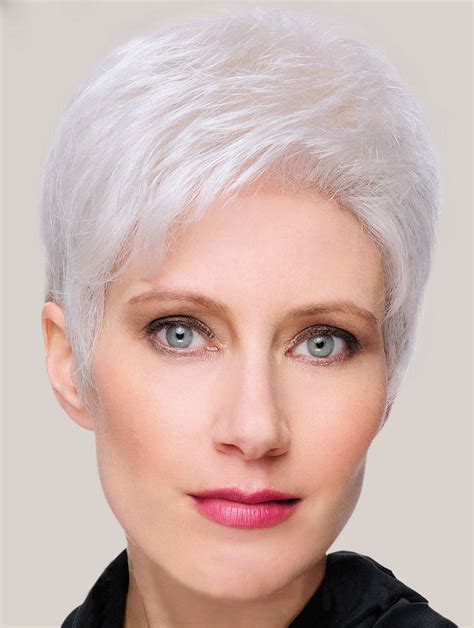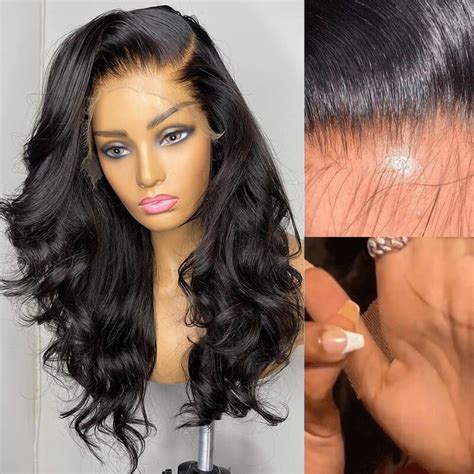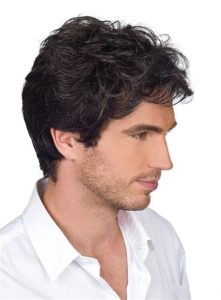2025’s Ultimate Guide: Lace Wigs VS Synthetic Wigs
Introduction
In the realm of hair transformations, wigs have emerged as a versatile solution, offering instant style and confidence. Among the plethora of options available, lace wigs and synthetic wigs stand out as popular choices. 2025’s wig trends favor natural-looking, voluminous styles, and both lace wigs and synthetic wigs aim to meet these demands.

Lace Wigs: The Epitome of Natural Beauty
Advantages:
- Unparalleled Realism: Lace wigs boast a delicate lace base that seamlessly blends with the scalp, creating an illusion of real hair growth.
- Versatility: Lace wigs allow for endless styling possibilities, including high ponytails and intricate braids, thanks to their flexible base.
- Breathability: The lace construction ensures optimal airflow, preventing discomfort during prolonged wear.
Disadvantages:
- Higher Cost: Lace wigs tend to be more expensive compared to synthetic wigs.
- Maintenance: Lace wigs require regular maintenance, including washing, conditioning, and styling, to maintain their pristine appearance.
- Fragility: Lace wigs can be more fragile than synthetic wigs, requiring careful handling to prevent damage.
Synthetic Wigs: A Cost-Effective Alternative
Advantages:
- Budget-Friendly: Synthetic wigs offer a more economical option, making them accessible to a wider audience.
- Minimal Maintenance: Synthetic wigs are relatively low-maintenance, only requiring occasional washing and brushing to retain their shape.
- Durability: Synthetic fibers are highly durable, making synthetic wigs resistant to tangling and heat damage.
Disadvantages:
- Less Realistic Appearance: While synthetic wigs have improved significantly over the years, they still struggle to match the natural look of lace wigs.
- Heat Sensitivity: Synthetic hair fibers can be heat-sensitive, limiting styling options that involve heat tools.
- Limited Versatility: Synthetic wigs are less versatile compared to lace wigs, as their base is not as flexible for intricate styling.
Head-to-Head Comparison
| Feature | Lace Wig | Synthetic Wig |
|---|---|---|
| Realism | Exceptional | Good |
| Cost | Higher | Lower |
| Maintenance | High | Low |
| Versatility | Maximum | Limited |
| Durability | Moderate | High |
| Comfort | Breathable | Less Breathable |
| Styling Options | Extensive | Limited |
Understanding Customer Pain Points
Lace Wigs
- High cost: Customers may hesitate to invest in a lace wig due to its premium price point.
- Maintenance time: The need for regular maintenance can be off-putting for customers seeking a quick and convenient hair solution.
Synthetic Wigs
- Unnatural appearance: Customers may be disappointed by the lack of realism compared to human hair.
- Styling restrictions: The heat sensitivity of synthetic fibers limits styling options, hindering creativity.
Motivations Behind Wig Purchases
Lace Wigs
- Confidence boost: Lace wigs provide wearers with a renewed sense of confidence due to their natural-looking appearance.
- Special occasions: Lace wigs are often sought after for special events, such as weddings and red carpet appearances, where flawless hair is paramount.
Synthetic Wigs
- Cost-effectiveness: Customers seeking a budget-friendly hair transformation opt for synthetic wigs as a cost-conscious solution.
- Convenience: The low-maintenance nature of synthetic wigs appeals to those with busy lifestyles who prioritize ease of care.
Current Status and Future Trends
Current Status
- Lace wigs currently dominate the premium wig market, offering the highest level of realism and styling versatility.
- Synthetic wigs hold a strong position in the budget-friendly segment, catering to those prioritizing affordability and convenience.
Future Trends
- Technological advancements: Innovations in lace construction and synthetic fiber technology will continue to improve realism and durability.
- Personalized wig creation: Customers will have access to customized wigs tailored to their specific preferences and head shape.
- Increased inclusivity: Wig manufacturers will prioritize creating wigs that cater to diverse hair types and skin tones, ensuring inclusivity for all.
Case Study: Emily’s Journey to Confidence
Emily, a young professional, struggled with hair loss due to a medical condition. After trying various hair replacement options, she decided to invest in a lace wig. Emily was amazed by the natural look and transformative power of the lace wig. It boosted her confidence and enabled her to embrace her femininity once more.
Conclusion
The choice between lace wigs and synthetic wigs ultimately depends on individual needs and preferences. Lace wigs offer the pinnacle of realism and versatility, while synthetic wigs provide a cost-effective and low-maintenance alternative. Understanding customer pain points and motivations, along with staying abreast of industry trends, empowers consumers to make informed decisions that enhance their confidence and self-expression. As the wig industry continues to innovate, the future holds exciting possibilities for even more seamless and personalized hair transformations.













